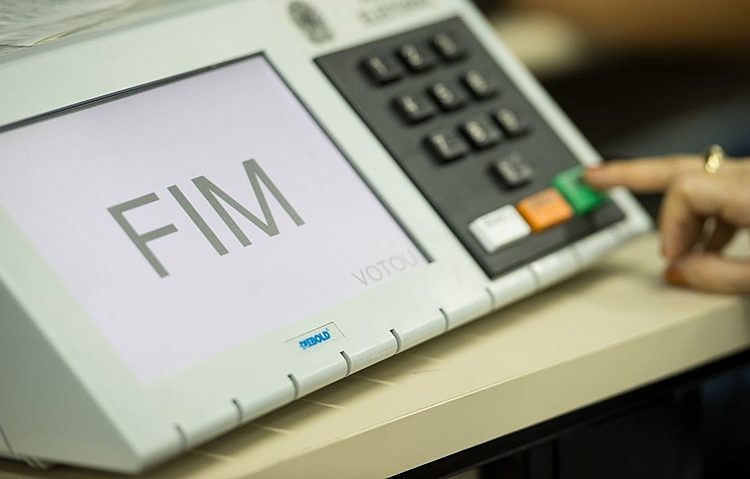Although research institutes have released slightly divergent figures in the most recent voting intention polls for Brazil’s presidency, all credible polls show Workers’ Party candidate Luiz Inácio Lula da Silva’s victory in the first round as a real possibility. In this context, “tactical voting” – voting for someone who was not the first choice intending to end the electoral dispute in the first round – becomes increasingly important.
According to a research released by Ipespe last Saturday, 68% of the voters want the elections to be defined in the first round. This preference was seen by Ciro Gomes’ campaign (Democratic Labor Party), which lost militants and supporters within his own party. These are people who defend voting for Lula in an election that, from its beginning, was drawn as a “plebiscite” between the leftist candidate and the current president Jair Bolsonaro (Liberal Party).
For political science professor Mayra Goulart, of the Federal University of Rio de Janeiro (UFRJ) and Federal Rural University of Rio de Janeiro (UFRRJ), there are two factors that come together to increase this movement for “useful voting’ in the 2022 presidential election. The first factor has to do with a big part of the population rejecting politics, an attitude that has been around for a while. The other factor is the threat Bolsonaro’s candidacy poses.
“There is that voter who sees politics as a waste of time and says: ‘I don’t want to go to vote once again’. This is not news. But there is also the fear of the election result not being respected. We are not dealing with a normal election. We have a far-right candidate with electoral viability: Bolsonaro. The 2018 elections were the first time that it happened: a [Brazilian] far-right candidate presented electoral viability. It had never happened before during the new republic [after the end of the military dictatorship, in 1985]”, she highlights.
For Goulart, Lula’s eventual victory in the first round would reduce the chances of contesting the poll – a constant threat Bolsonaro makes –, since the choice for a president would happen together with the election of thousands of parliamentarians across the country. In principle, Bolsonaro would not be supported in his actions if he rejects the result, as Lula's victory would take place on the same day as deputies, senators, and governors are elected or reelected in the first round. In this context, useful voting acquires importance.
:: Electoral surveys in Brazil diverge; understand the reasons ::
“The useful vote is common all around the world. In an election, there is room for new proposals, ideas, and programs. However, as electoral campaigns progress, they are divided into those with electoral viability and those without. It is very likely that, as the final stretch gets closer, votes for candidates who are not electorally viable tend to migrate to other candidacies”, he explains.
Political scientist Cláudio Couto (Getulio Vargas Foundation) bets on a movement of vote migration during the last days of the electoral campaign, especially in the case of potential Ciro voters. He believes it is likely that some of Ciro's supporters will change their minds at the last minute and vote for Bolsonaro, but most will change their minds to support Lula, who, therefore, may win in the first round.
Couto, who runs the YouTube channel “Outside Politics There's No Salvation”, points out that “this is an election different from others and there is a lot at stake”. He recalls that the tendency towards useful voting is common in the final stretches of electoral disputes, to a certain extent. This time, however, there is a greater motivation than usual, and the repulsion for Bolsonaro could increase this movement.
“When we look at poll data, we see that at least half of Ciro supporters say they could change their vote. A similar situation applies to Simone Tebet supporters. In the case of Lula or Bolsonaro, this percentage is much lower, between 10% and 20%. Changing at the last minute when you're voting for a stronger candidate is much less likely to happen than when you’re voting for an electorally weaker candidate”, he comments.
What should be the Workers’ Party approach?
To Couto, Lula’s campaign should approach voters subtly to attract the support of people who still don’t know for which candidate to vote or who are supporting other presidential candidates. He explains that it is crucial to avoid a campaign that uses sentences such as “Don’t vote for Ciro or Simone, because they have no chance [of winning]. I have”. This may scare away voters and make it difficult to build new alliances in the second turn, if it happens.
“We must take the following as a premise: every candidate searches for votes, and in order to get them, they must present themselves as a better choice [than the others] and avoid speaking negatively about voters' options. Thus, what Lula must do is say ‘Vote for me'. He must develop his own way”, he says.
Mayra Goulart adds that it is necessary to highlight this year’s election is not a normal one. In other words, it is important to emphasize that the country’s democratic institutions are at stake.
“It must be made clear that not only are we facing the authoritarian escalation of Bolsonaro, but also an economic approach that dismantles public policies, education, health, and infrastructure. There is a possibility that the country will enter a state of upheaval. Defeating this possibility must be the goal that unifies voters and lead Lula to victory in the first round”, he concludes.




